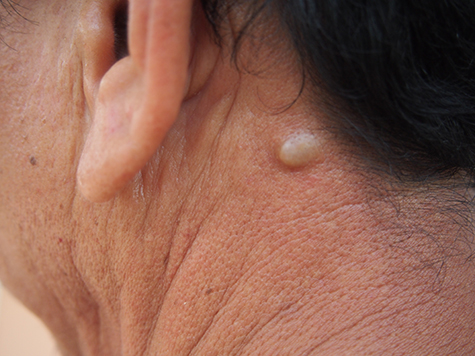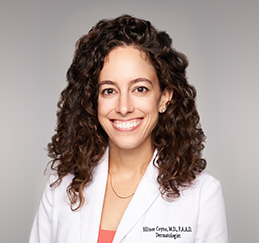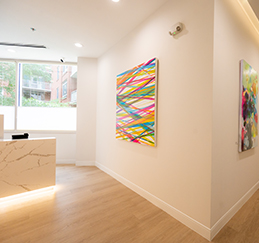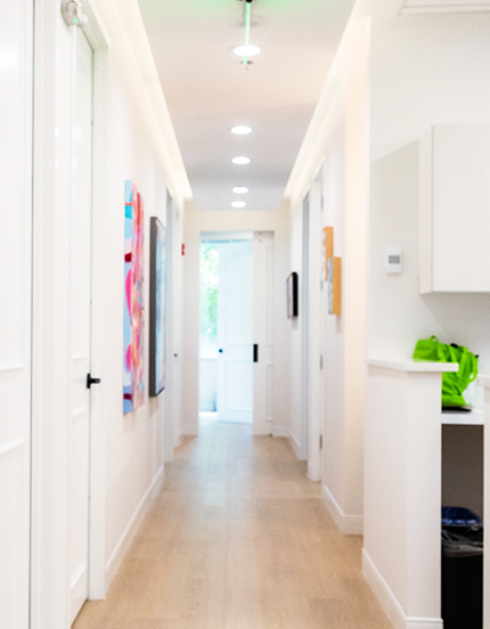What Causes Cysts?
There are several common causes of cysts. You may develop a cyst because of:
What Types of Cysts Are There?

Some types of cysts included:
- Epidermal inclusion cysts, caused by clogged sebaceous glands/hair follicles
- Pilar cysts, firm bumps under the skin typically found on the scalp
- Pilomatricoma, small hard bumps below the skin
- Ganglion cysts, a swollen bump found on a tendon, usually on the hands or wrists
- Dermoid cysts, which are usually present at birth
- Cystic acne, a more severe type of acne
How Can I Prevent Cysts?
Because most preventable cysts form due to clogged oil glands or hair follicles, an appropriate hygiene and skincare routine can help you to prevent cysts. This may include an exfoliating routine, using a recommended cleanser, or acne treatment. Your dermatologist will recommend at-home skincare that is suited to your skin type and can help you prevent cysts from forming.
Why Treat Cysts?
Cysts can continue to grow if left untreated or cause uncomfortable symptoms at any size. You may want to treat a cyst because it is:
- Large or growing
- Infected
- In a sensitive area
- Painful
- Draining

How Can I Treat Cysts?
Depending on the type of cyst you have, your dermatologist may recommend one of several different treatment options. The most common include:
- Draining the cyst (lancing)
- Cortisone injections
- Surgically removing the cyst
Schedule an Appointment
If you have a painful, irritating, or growing cyst, do not delay treatment. Our board-certified dermatologists can help treat your cyst through an effective yet simple solution that is best suited to you.
To schedule an appointment at Arlington Dermatology, please call our office or request an appointment online.
Cyst FAQS
Can a cyst be hard?
Some types of cysts may be hard. This usually occurs when a cyst has ruptured and scar has formed.
Can a dermatologist remove a cyst?
Dermatologists can deflate cysts by draining (lancing) but that is not permanent. Surgery in which the cyst lining is removed is required for complete removal of a cyst.
Can you pop a cyst?
It is not advisable to pop a cyst or otherwise try to remove it at home. This can increase the risk of infection.
Do skin cysts go away?
Some cysts will shrink to being imperceptible without treatment.
What is inside a cyst?
A cyst may contain fluid, air or debris such as dead skin cells.
What are the most common types of cysts?
The most common types of cysts include epidermal inclusion cysts (EICs), pilar cysts, ganglion cysts, dermoid cysts, and cystic acne lesions.
Are cysts cancerous?
Most cysts are benign (non-cancerous) and pose no serious health risks; however, in rare cases, cystic appearing structures can be cancerous, so it’s important to have any unusual or rapidly evolving cysts evaluated by a dermatologist.
What causes cysts to form?
Cysts can form due to blocked ducts, infection, inflammation, or an overproduction of cells. They may also develop because of genetic factors or trauma to the area.
How are cysts diagnosed?
Cysts are typically diagnosed through a physical examination, medical history review, and/or imaging tests like ultrasound or MRI. A biopsy may be performed if the cyst appears suspicious or unusual.
What are the treatment options for cysts?
Treatment options for cysts include incisional drainage or surgical removal. The choice of treatment depends on the type, size, and location of the cyst.
Can cysts go away on their own?
Some cysts, especially small ones, may resolve on their own without the need for medical intervention. However, larger or painful cysts typically require treatment, such as ILK injections or surgical excision, to prevent further pain or discomfort and recurrence.
Can cysts recur after treatment?
Yes, cysts can recur after treatment, depending on the treatment. For example, ILK injections may help mitigate a current flare but do not remove the cyst wall underneath the skin. As such, the cyst may refill again in the future if it is not removed.
Are cysts preventable?
While cysts are not typically preventable, maintaining good hygiene, such as washing the body with a benzoyl peroxide wash, and avoiding injury to areas prone to cysts can reduce the likelihood of acne or inflammatory cyst formation. If you are currently managing an inflamed cyst, avoid attempts to drain or resolve the lesion on your own and instead seek a dermatologist to discuss treatment options.



